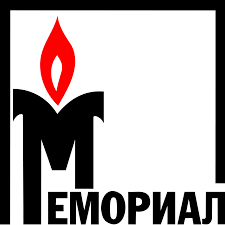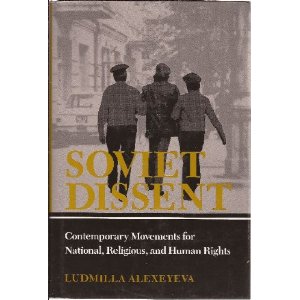Russia’s Supreme Court ruled on Tuesday that the nation’s most prominent human rights organization must close, signaling President Vladimir V. Putin’s longstanding determination to control the narrative of some of the most painful and repressive chapters of Russian history, The New York Times reports:
The court ordered the liquidation of Memorial International, which chronicled the harrowing persecutions in the infamous Stalin-era labor camps in an effort to preserve the memory of its victims. The group, founded by the Nobel Peace Prize laureate Andrei Sakharov and other dissidents more than three decades ago, became a symbol of the country’s emerging democracy after the collapse of the Soviet Union.
Political analyst Anton Orekh said the closure of Memorial was akin to the “public justification of Stalin purges.” “The consequences for the present and the future of our country will be catastrophic,” he told AFP.
 The court decision on Memorial sets an ominous precedent for dozens of other organizations designated as foreign agents by Russian authorities, The Post adds. It also raises questions about the fate of Memorial’s archives containing the personal files of 60,000 victims of Soviet repression, its searchable database containing 3 million names of victims, and its database with the names of nearly 42,000 people who worked for the Soviet secret police from 1935 to 1939, when repression peaked.
The court decision on Memorial sets an ominous precedent for dozens of other organizations designated as foreign agents by Russian authorities, The Post adds. It also raises questions about the fate of Memorial’s archives containing the personal files of 60,000 victims of Soviet repression, its searchable database containing 3 million names of victims, and its database with the names of nearly 42,000 people who worked for the Soviet secret police from 1935 to 1939, when repression peaked.
“This is bitter, as Memorial — an island of free thought and one of the last bastions of democratic civil society in Russia — will be liquidated. Internal authoritarian harmonization and aggressive external politics go hand in hand,” said Ralf Fuecks, managing director of the Center for Liberal Modernity and a former politician in Germany, RFE/RL adds.
In a joint statement, the German branch of Amnesty International, the Heinrich Böll Foundation, and the Buchenwald and Mittelbau-Dora Memorials Foundation decried the ruling, saying the Russian government “wants to monopolize individual and collective memory,” VOA adds.
“A power that is afraid of memory will never be able to achieve democratic maturity,” Auschwitz-Birkenau State Museum director Piotr Cywiński tweeted on Tuesday.
 Memorial International’s lawyer, Tatiana Glushkova, confirmed the ruling to CNN and said the group would appeal the decision. “The real reason for Memorial’s closure is that the prosecutor’s office doesn’t like Memorial’s work rehabilitating the victims of Soviet terror,” Glushkova told CNN.
Memorial International’s lawyer, Tatiana Glushkova, confirmed the ruling to CNN and said the group would appeal the decision. “The real reason for Memorial’s closure is that the prosecutor’s office doesn’t like Memorial’s work rehabilitating the victims of Soviet terror,” Glushkova told CNN.
Sergei Mitrokhin, a Russian opposition politician, said that Memorial was “the last barrier on the way to complete Stalinization of the society and state,” the Times adds.
“What we have now is still lite Stalinism,” he said, speaking on Ekho Moskvy, a radio station. “I am afraid it can turn way worse,” Mr. Mitrokhin said. “It is a tragedy for our country.”
The Kremlin’s persecution of Memorial, Russia’s venerable human rights group, is typical of authoritarian attempts to exploit and distort the past to give legitimacy to violence, said National Endowment for Democracy board member Anne Applebaum, the author of Twilight of Democracy: The Seductive Lure of Authoritarianism.
“Stalinism-lite” – Putin regime reaches a new low.
https://t.co/ZEyR2rsZLV— Democracy Digest (@demdigest) December 28, 2021







